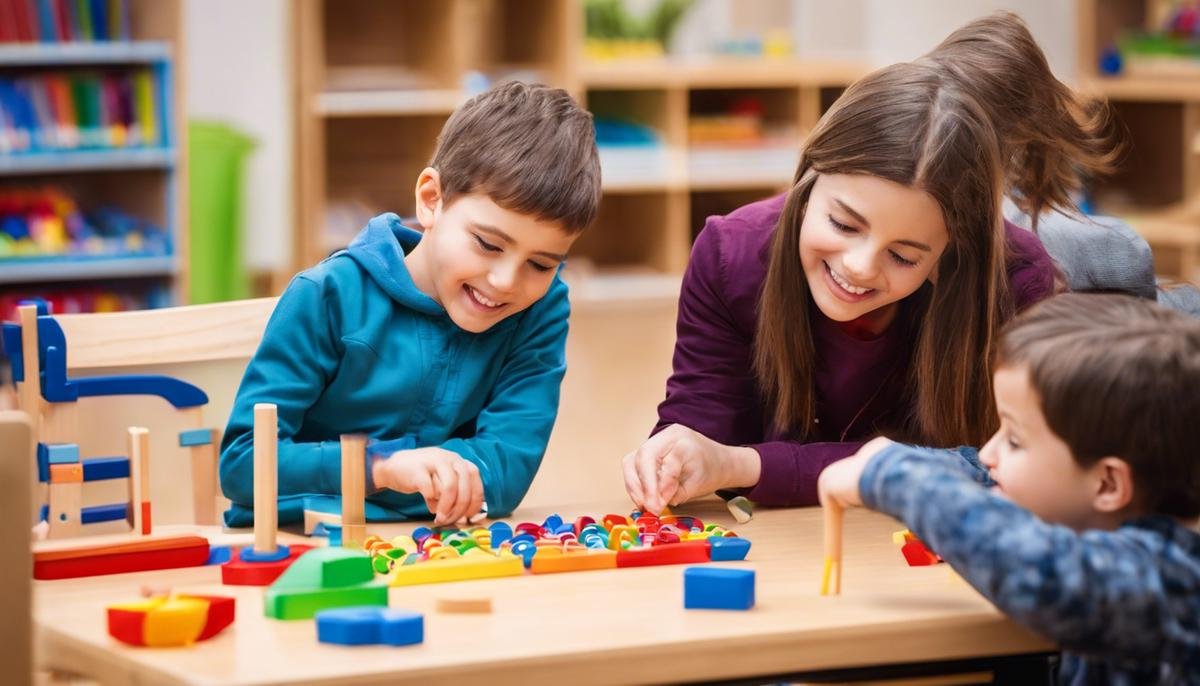
Every city has its unique charm and vibe, but when it comes to supporting and nurturing individuals with autism, certain cities truly shine brighter than the rest. Minnesota, in particular, houses several cities known for their exceptional supports and resources for those on the spectrum. From specialized education programs and therapy centers to community groups and autism-friendly events, cities like Minneapolis, Rochester, St. Paul, and Duluth stand out for their dedication towards fostering a truly inclusive environment.
Discovering Autism-Friendly Cities: What Makes Minneapolis Stand Out?
Minneapolis, known as the “City of Lakes,” is swiftly gaining recognition as a hub for families, especially those with kids on the autism spectrum. Besides being full of opportunities for fun, recreation, and growth, it notably shines in numerous areas that make it an autism-friendly city worth considering.
Perhaps one of the most attractive facets of Minneapolis for families is the plentiful resources it offers for children with autism. The city is home to some of the best autism treatment centers in the country, which provide a range of services including diagnosis, therapy, counseling, and care. By choosing Minneapolis, you’re situating yourself in a veritable nucleus of autism-related support and services.
Education in Minneapolis is something to write home about! The city teems with many outstanding schools, some of which have specialized programs that cater to the needs of children on the autism spectrum. These programs ensure that your child benefits from an educational environment designed for them, helping them grow and learn in the best way possible.
Traveling through Minneapolis is a breeze, thanks to the city’s exceptional public transportation system. Familiarizing your child with how the city moves can be a practical lesson in independence and self-reliance. It’s important to note that many public spaces throughout Minneapolis are designed with sensory considerations, which can significantly ease the experiences of those with autism.
For families who appreciate outdoor fun, the city’s lush parkland, beautiful lakes, and plentiful green spaces provide ample opportunity for exercise, exploration, and relaxation. Could there be a better way to spend a sunny afternoon than a family picnic in one of Minneapolis’ inviting parks?
Furthermore, Minneapolis is also recognized for its inclusive community. This city has a number of support groups, meetings, and activities that aim to foster a sense of belonging for both families and individuals on the autism spectrum. Living in Minneapolis means being part of a diverse, accepting community that embraces everyone in its fold.
Finally, the healthcare facilities in Minneapolis are top-notch – boasting of specialized autism clinics and hospitals. This ensures immediate access to dedicated healthcare professionals who understand and can effectively address the medical needs related to autism, providing your family with peace of mind.
So, when considering a city that provides supportive resources, an active community, ample recreational opportunities, and great healthcare – look no further than Minneapolis! It’s not just an autism-friendly city – it’s a city where families thrive.

Exploring Autism Support in Rochester
In Rochester, family units with autistic members can breathe a sigh of relief thanks to the strong and diverse support systems available. This beautiful city, which emphasizes community well-being, inclusivity, and specialized care, removes many of the challenges that other places might present.
Perhaps one of the standout attributes of Rochester is how everyone’s needs are catered to, particularly within the realm of leisure activities. The city is home to a varied collection of recreational spots that focus on inclusivity and accessibility. There are several sensory-friendly playgrounds and activity centers where autistic individuals can enjoy fun and engaging play in a safe, non-judgmental environment. These venues acknowledge the unique requirements of these special children and adults, creating a joyful and comfortable atmosphere for them to thrive.
The city’s dedication to inclusivity goes further still. A broad spectrum of adaptive sports and recreational programs gets everyone involved, irrespective of their abilities. From adaptive dance classes to horse riding or swimming, Rochester ensures that every member of the family has the opportunity for an active and fulfilling lifestyle.
Another admirable aspect of life in Rochester is the unwavering commitment to autism-specific education. Rochester Educational Services provides a multitude of services catering to autistic individuals of all ages, following a personalized approach. They focus on developing functional skills while also fostering personal and academic growth in a nurturing and understanding setting.
Rochester goes above and beyond to ensure the mental wellbeing of the families too. For parents or caregivers of autistic individuals, free counseling sessions and support groups are readily available. These safe spaces allow them to share experiences, learn coping strategies, and get emotional support when they need it most.
Moreover, Rochester’s knack for innovation shines bright in their use of advanced technology to provide aid for families with autistic members. Technology-integrated therapy and the use of assistive devices are commonplace in Rochester. Tools such as visual schedules, reminders, coding robots, or even digital sensory rooms revolutionize the learning and coping mechanisms for autistic individuals, often contributing to an improved quality of life.
Rochester, with its flock of skilled professionals, warm-hearted citizens, and an ethos that champions inclusivity and forward-thinking approaches, ensures that no family ever feels left behind. This magnificent city dares to imagine a world where autism doesn’t limit potential; it simply calls for a different way to unlock it.

St. Paul: An Unparalleled Support for Autism
Firstly, let’s talk about the dedicated research and development centers that specifically focus on autism. St. Paul is home to renowned research institutions conducting pivotal studies on autism, including the University of Minnesota, which offers specialized programs and workshops. They carry out extensive research and continually evolve their understanding of autism, which in turn helps to provide excellent care and resources for autistic children and their families.
There are also numerous non-profit organizations dedicated to supporting families with autistic children in St. Paul. These include the Autism Society of Minnesota and Fraser, which provide resources and professional guidance designed to assist and uplift families dealing with autism. These organizations offer a multitude of free or low-cost services like therapies, social skills groups, and access to up-to-date research findings.
In St. Paul, the belief in an inclusive society is evident in their push toward autism-friendly initiatives. Their pioneering initiative, “Autism Friendly Austin,” aims to make local businesses and public spaces more inclusive. This project provides support, training, and resources to businesses, helping them to accommodate the unique needs of individuals with autism.
St. Paul also boasts one of the most comprehensive autism diagnostic clinics around, the Minnesota Autism Center. It provides numerous services, including diagnostic assessments, behavioral therapy, and speech and occupational therapies, among others. Their team of experienced professionals works tirelessly to ensure that children with autism in the city are receiving the care they need.
Parental support is of utmost importance when raising a child with autism. St. Paul recognizes this crucial element and provides several services for parents. Parent-to-parent support programs are predominant, where parents can share their experiences and offer emotional and informational support to one another. These programs create a comforting community where parents do not feel alone in their journey.
The regional parks within St. Paul provide areas for outdoor activity and exploration, with many parks offering sensory-friendly spaces. They also host various events, like the Annual Autism Society of Minnesota Steps for Autism walk, which aids in spreading awareness and offers a chance to connect with other families experiencing the same journey.
The city’s progressive approach to accommodating the needs of children with autism also extends to their cultural spaces. Many libraries, museums, and theaters offer sensory-friendly events and programming, providing an opportunity for autistic children to explore and engage in cultural experiences comfortably.
In conclusion, St. Paul does an outstanding job providing support for children with autism and their families. The city has used a holistic approach that interweaves cutting-edge research, innovative initiatives, comprehensive medical facilities, community and parental support, and inclusive public spaces. All these elements make St. Paul stand out as an excellent place for children with autism and their families.

Autism Support in Duluth: Embracing Neurodiversity
Beyond these, Duluth’s inclusive culture extends into their yearly events and festivals. These community-wide celebrations have a key focus on inclusion, and much effort is made to ensure these are sensory-friendly experiences. This means that everyone, including those with autism, feels welcomed and are well accommodated. Additionally, many of these events also serve as awareness-raising and fundraising occasions, facilitating the continual improvement of support and facilities within the city.
In addition to public spaces and events, Duluth’s private sector also plays an essential role in creating an inclusive environment. Many businesses within the city have awareness and training programs to fully equip their staff with knowledge and understanding of autism. This ensures that children with autism and their families receive appropriate service and feel genuinely welcomed.
Moreover, Duluth prioritizes ongoing education around autism, not only for families but also for professionals. Many local colleges and research institutions offer autism-specific modules and certification programs. These serve to continually increase understanding and awareness of autism within the community and maintain Duluth’s reputation as an inclusive city.
Another outstanding aspect of Duluth is menu adaptation in local eating places. Restaurants and food joints are aware of the dietary restrictions some children with autism may have. Therefore, several establishments provide autism-friendly menus. This delicate attention to detail makes all the difference for families as it reduces mealtime anxieties, making dining out a pleasant experience for everyone.
Lastly, Duluth’s law enforcement and first responders receive specialized training to interact with individuals with autism. This thoughtful measure ensures that potential situations requiring their intervention are handled with the utmost care, ensuring safety for all parties involved.
In essence, Duluth demonstrates an all-rounded approach to facilitating an inclusive and supportive environment for children with autism. The whole community strives to understand, support, and include people with autism, leading to the creation of a city that is not only livable but also lovable for children on the autism spectrum and their families.

The commitment by cities in Minnesota towards supporting individuals on the autism spectrum is not only commendable but also indispensable for their thriving growth. Embracing neurodiversity, these cities – Minneapolis, Rochester, St. Paul, and Duluth – provide a phenomenal landscape for individuals with autism to learn, grow, and live confidently. With specialized educational facilities, dedicated medical and therapeutic assistance, community support groups, and inclusive recreational options, they ensure that the journey of growth is not just comprehensive but also beautiful for everyone. It is through their continuous and concerted efforts that Minnesota shines as a beacon of hope and abundance for families impacted by autism.




